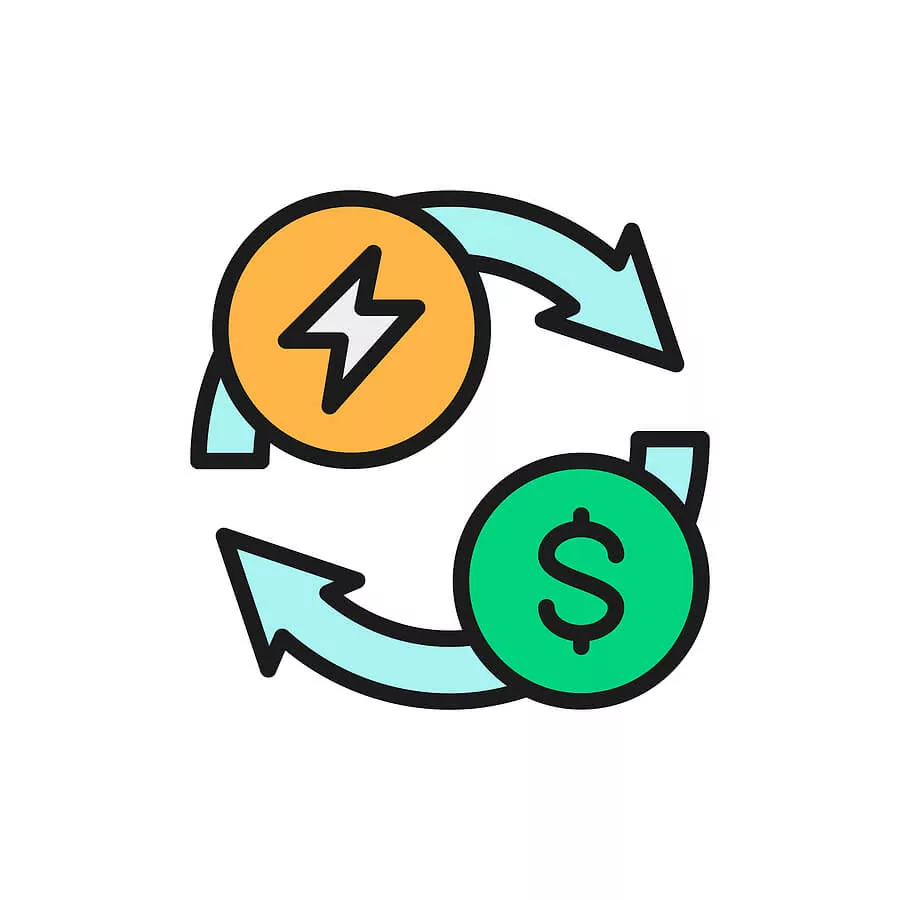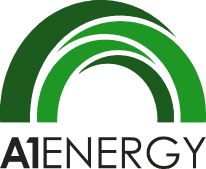
Choosing the right energy broker is crucial for businesses looking to optimize their energy usage and reduce energy costs. However, many businesses are unsure of what questions to ask when evaluating potential energy brokers. In this blog post, we will unveil the secrets and provide you with the 5 most essential topics to discuss with your energy broker. By asking these questions, you can ensure that you are making an informed decision and selecting a broker that aligns with your business goals and needs.
The Importance of Choosing the Right Energy Broker
The Importance of Choosing the Right Energy Broker
Choosing the right energy broker is of utmost importance for businesses seeking to optimize their energy usage and reduce costs. An energy broker plays a crucial role in helping businesses navigate the complex energy market and secure the best possible energy contracts. Here are some reasons why choosing the right energy broker is essential:
1. Expertise and Industry Knowledge: Energy brokers are experts in the energy market and have extensive knowledge of various energy products, suppliers, and pricing structures. They stay updated on market trends and regulations, allowing them to provide valuable insights and guidance to businesses. By leveraging their expertise, businesses can make well-informed decisions and develop strategies that align with their goals.
2. Cost Savings: One of the primary goals of engaging an energy broker is to save costs. A knowledgeable broker can analyze a business's energy usage and negotiate favorable rates with suppliers. They can access a wide network of suppliers and compare different energy products to find the most competitive offers. By securing cost-effective energy contracts, businesses can significantly reduce their energy expenses and improve their bottom line.
3. Time and Effort Savings: Navigating the energy market can be time-consuming and challenging for businesses, especially those without internal resources dedicated to energy procurement. Energy brokers take the burden off businesses by handling the entire procurement process, including supplier negotiations, contract management, and ongoing monitoring. This saves businesses valuable time and allows them to focus on their core operations.
4. Customized Solutions: Each business has unique energy requirements and goals. A good energy broker understands this and tailors their services to meet the specific needs of their clients. They conduct detailed energy audits, assess consumption patterns, and recommend customized energy solutions that align with the business's objectives. This personalized approach helps businesses optimize their energy usage and achieve their sustainability targets.
5. Risk Mitigation: The energy market is subject to fluctuations and uncertainties, such as changes in regulations, supply disruptions, or price volatility. A competent energy broker helps businesses mitigate these risks by providing risk management strategies and hedging options. They can advise on contract terms, recommend suitable products to hedge against price fluctuations and ensure businesses are protected from unexpected energy-related risks.
Choosing the right energy broker is crucial for businesses seeking to optimize their energy usage and reduce costs. With their expertise, industry knowledge, and personalized approach, energy brokers can help businesses navigate the complex energy market, secure cost-effective energy contracts, and mitigate risks. By asking the right questions and evaluating potential brokers based on their experience and track record, businesses can make an informed decision and select a commercial energy broker that aligns with their specific needs and goals.

1. Understanding Their Experience and Qualifications
1. Understanding Their Experience and Qualifications
When choosing an energy brokerage company, it is essential to understand their experience and qualifications in the industry. This will give you insights into their knowledge and expertise, and help you determine if they are the right fit for your business. Here are some key questions to ask when evaluating the experience and qualifications of an energy broker:
1. How long have they been in the industry?
Knowing the number of years an energy broker has been in the industry can give you an idea of their level of experience. Look for brokers who have been operating for a significant period, as they will have a better understanding of the energy market and its dynamics.
2. Have they worked with businesses similar to yours?
Ask the broker if they have worked with businesses that have similar energy requirements and goals as yours. This will demonstrate their familiarity with your industry and their ability to provide tailored solutions. An experienced broker who understands the unique challenges of your sector will be better equipped to help you optimize your energy usage and reduce costs.
3. What is their track record?
Inquire about the broker's track record and success stories. Ask if they can provide references or case studies that showcase their ability to deliver results. A reputable energy broker will be transparent about their past achievements and happy to share testimonials from satisfied clients.
4. Do they hold a broker's license in your state?
It is essential to ensure that the energy broker you are considering holds a valid broker's license in your state. This license ensures that the broker has met the necessary requirements and regulations to perform the duties of an energy broker in your jurisdiction. Working with a licensed broker will give you peace of mind knowing that they are operating legally and have the necessary knowledge of state-specific energy markets and regulations.
5. Are they independent or affiliated with specific energy suppliers?
It is important to understand if the energy broker is independent or affiliated with specific suppliers. Independent brokers have no bias towards any particular supplier and can provide unbiased advice and recommendations. On the other hand, brokers affiliated with specific suppliers may have limited options to offer, and their recommendations may be influenced by their affiliations.
By asking these questions, you can gain valuable insights into the experience and qualifications of an energy broker. This will help you make an informed decision and choose a broker who has the expertise and capabilities to meet your business's unique energy needs and goals.

2. Assessing Their Understanding of Your Business Needs
2. Assessing Their Understanding of Your Business Needs
When working with an energy broker, it is crucial to assess their understanding of your business needs. A knowledgeable broker who comprehends your specific requirements will be better equipped to provide tailored solutions and help you achieve your energy goals. Here are some essential questions to ask when evaluating an energy broker's understanding of your business needs:
1. Can you explain how our energy consumption impacts our business operations and costs?
An experienced energy broker should have a thorough understanding of how energy consumption affects different aspects of your business, such as operations, productivity, and financial costs. They should be able to explain the relationship between energy usage and its impact on your bottom line.
2. What strategies would you recommend to optimize our energy usage and reduce costs?
A competent energy broker should be able to provide specific strategies and recommendations to help you optimize your energy usage and reduce costs. They should be familiar with energy-saving technologies and practices relevant to your industry and be able to tailor their suggestions based on your unique business needs.
3. Can you provide examples of clients you have helped in similar industries?
Inquire about the broker's experience working with businesses in industries similar to yours. Ask for specific examples of clients they have helped optimize their energy usage and reduce costs. This will demonstrate their familiarity with your sector and their ability to provide effective solutions tailored to your industry's unique challenges.
By assessing an energy broker's understanding of your business needs through these questions, you can ensure that they have the expertise and capabilities to effectively assist you in achieving your energy goals. Choosing a broker who comprehends your specific requirements will maximize the value they bring to your business and help you make informed energy-related decisions.

Energy Contract Assessment
What type of energy procurement contract is best for my facility?
3. Their Approach to Stay Up to Date With Market Trends
3. Their Approach to Stay Up to Date With Market Trends
Staying up to date with market trends is crucial for an energy broker to effectively serve their clients. As the energy market is constantly evolving, brokers need to have access to relevant information and insights. Here are five questions to ask an energy broker to assess their approach to staying up to date with market trends:
1. How do you gather information about market trends and changes?
An informed energy broker should have a reliable and proactive approach to gathering information about market trends and changes. They should be able to provide details on the sources they utilize, such as industry publications, market reports, government websites, and industry associations. A proactive approach may also include attending conferences, participating in webinars, and networking with industry experts.
2. How frequently do you review market trends and update your knowledge?
Market trends can change rapidly, so an energy broker must review and update their knowledge regularly. Ask the broker how frequently they review market trends and whether they have a specific schedule or process for staying updated. Ideally, the broker should demonstrate a commitment to staying informed on an ongoing basis.
3. Can you provide examples of recent market trends that have impacted energy prices or regulations?
This question will help gauge the broker's ability to apply their knowledge of market trends to real-world situations. Request examples of recent trends that have had an impact on energy prices or regulations and ask how the broker has adapted their strategies or recommendations in response. This will demonstrate the energy consultants ability to connect market trends with practical implications for their clients.
4. How do you communicate market trend updates to your clients?
Effective communication is key when it comes to sharing market trend updates with clients. Ask the broker how they typically communicate these updates and whether they provide regular reports or newsletters. Additionally, inquire about their ability to explain complex market trends in a clear and understandable manner, as this will show their ability to translate information into actionable insights for clients.
By asking these questions, you can assess an energy broker's approach to staying up to date with market trends and determine whether they have the necessary knowledge and resources to provide accurate and timely insights. Choosing a broker who prioritizes staying informed will ensure that you receive the most relevant and up-to-date information to inform your energy-related decisions.
4. Discovering Their Approach to Contract Negotiation
4. Discovering Their Approach to Contract Negotiation
When working with an energy broker, it is important to understand their approach to contract negotiation. Negotiating energy contracts requires knowledge, experience, and strategic thinking to ensure that clients receive favorable terms and conditions. Here are six essential questions to ask your energy broker to discover their approach to contract negotiation:
1. How experienced are you in negotiating energy contracts?
It is crucial to work with an energy broker who has extensive experience in negotiating energy contracts. Ask about their background and how many years they have been involved in contract negotiation.
2. What strategies do you employ during contract negotiations?
Each energy broker may have different strategies for negotiating contracts. Inquire about their approach and how they plan to advocate for your best interests. Look for brokers who prioritize transparency, collaboration, and a client-centric approach during negotiations.
3. How do you ensure that the terms and conditions of a contract are favorable for your clients?
A reliable energy broker should have a thorough understanding of the energy market and be able to identify favorable terms and conditions for your specific needs. Ask how they analyze and evaluate contract proposals to ensure that they align with your goals and requirements.
4. How do you handle disputes or challenges that may arise during contract negotiations?
Contract negotiations can sometimes encounter challenges or disputes. Ask the broker how they handle such situations and ensure that they have the necessary skills to navigate any potential obstacles. Look for brokers who demonstrate strong communication and problem-solving abilities.
By asking these questions, you can gain insights into an energy broker's approach to contract negotiation and determine if they have the expertise and capabilities to secure favorable terms for your energy contracts. Choosing a broker who is experienced and strategic in negotiation can help optimize your energy procurement and ultimately save your business valuable resources.

5. Gaining Clarity on Their Pricing Structure
5. Gaining Clarity on Their Pricing Structure
Understanding the pricing structure of an energy broker is crucial when selecting the right professional to assist with your energy procurement needs. By gaining clarity on their pricing structure, you can ensure that it aligns with your budget and objectives. Here are seven essential questions to ask your energy broker to gain insight into their pricing structure:
1. What is your fee structure?
Inquire about the energy broker's fee structure to understand how they charge for their services. Some brokers may charge a flat fee, while others may work on a commission basis. It is essential to have a clear understanding of how they calculate their fees.
2. Are there any additional costs or hidden fees?
Transparency is key when working with an energy broker. Ask if there are any additional costs or hidden fees that you should be aware of. This can include charges for market analysis, contract review, or any other services they provide throughout the procurement process.
3. How do you determine the commission percentage, if applicable?
If the energy broker works on a commission basis, ask how they determine the commission percentage. Understanding this will give you insight into their motivations and help ensure there are no conflicts of interest.
4. Are there any performance-based incentives or bonuses?
Inquire if the energy broker offers any performance-based incentives or bonuses. This can be an added benefit if the broker can deliver exceptional results or negotiate favorable terms on your behalf.
5. Do you provide cost savings analysis?
Ask if the energy broker provides a cost savings analysis as part of their services. This analysis can help you understand the potential savings you can achieve by working with them and evaluate the value they bring to your energy procurement strategy.
6. Is there room for negotiation on your fees?
It is worth asking if there is room for negotiation on the energy broker's fees. Depending on the scope of your energy procurement needs and the potential value of the contract, they may be open to adjusting their pricing structure to accommodate your requirements.
By asking these questions, you can gain clarity on the energy broker's pricing structure and ensure that it aligns with your budget and expectations. Selecting a broker with a transparent and fair pricing model will contribute to a successful energy procurement strategy and help you achieve your financial goals.
Choosing the right energy broker is a crucial decision that can significantly impact your energy procurement strategy and financial goals. By asking the right questions, you can gain valuable insights into an energy broker's pricing structure and find the perfect fit for your business.
Understanding an energy broker's fee structure is essential to ensure it aligns with your budget and objectives. By inquiring about their fee structure, you can gain clarity on how they charge for their services and whether it suits your needs. Some brokers may have a flat fee, while others work on a commission basis, so it's crucial to understand how they calculate their fees.
Transparency is key when working with an energy broker, and asking about additional costs or hidden fees is important to avoid any surprises. Inquire about charges for market analysis, contract review, or any other services they provide throughout the procurement process. Understanding the commission percentage, if applicable, helps ensure there are no conflicts of interest.
Performance-based incentives or bonuses are an added benefit to consider. Asking if the energy broker offers such incentives can be a valuable factor in assessing their potential to deliver exceptional results or negotiate favorable terms on your behalf.
A cost savings analysis is another essential question to ask. Inquire if the energy procurement consultant provides this analysis as part of their services. This analysis can help you understand the potential savings you can achieve by working with them and evaluate the value they bring to your energy procurement strategy.
Requesting references from previous clients regarding the energy broker's pricing structure allows you to gain valuable insights into their experience. Their feedback can help you assess the fairness and competitiveness of the broker's pricing.
Finally, don't hesitate to ask if there is room for negotiation on the broker's fees. Depending on the scope of your energy procurement needs and the potential value of the contract, they may be willing to adjust their pricing structure to accommodate your requirements.
Asking these questions harnesses the power of knowledge and ensures you make an informed decision when selecting an energy broker. The right broker with a transparent and fair pricing model will contribute to a successful energy procurement strategy and help you achieve your financial goals.
